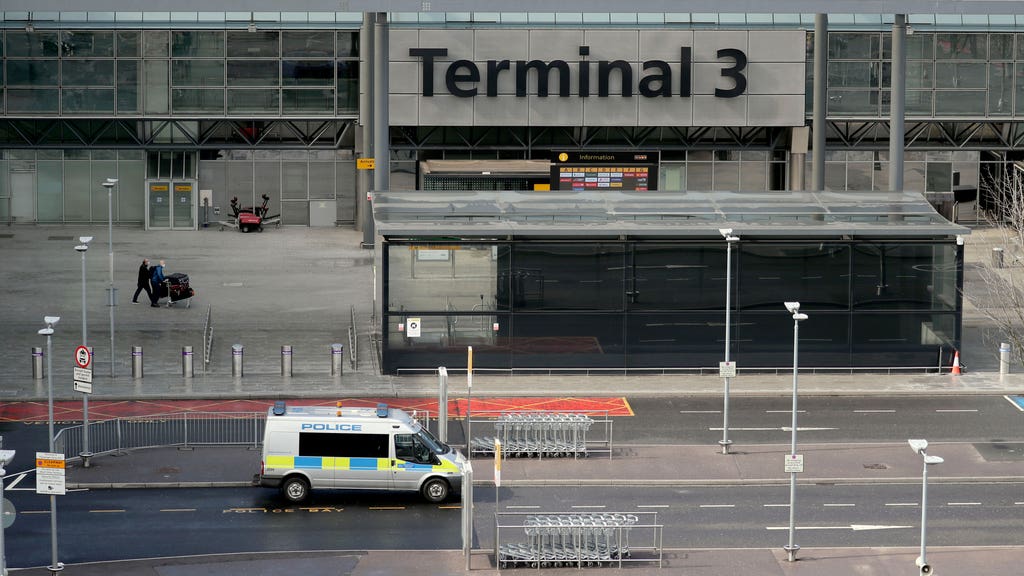Heathrow Opens New Facility To Process Passengers From Red List Countries

Heathrow has begun processing arrivals from red list countries in a dedicated terminal following concerns about them mixing with other passengers.
Travellers arriving from red list nations on direct flights are being taken to Terminal 3.
Passengers travelling to the UK on connecting flights from red list locations continue to transit through the airport alongside those from green and amber countries.
The red list currently consists of 43 nations from which arrivals are deemed to present a high risk of importing coronavirus.
Passengers arriving in the UK after being in one of those destinations during the previous 10 days must spend 11 nights in a quarantine hotel, costing £1,750 for solo travellers.
Red list countries from where direct flights to the UK are permitted include India, the Philippines, Pakistan, Kenya and Bangladesh.
The decision to separate arrivals on direct flights from red list destinations was welcomed by the GMB union, which had previously warned that “bottlenecks” are putting passengers and staff at risk.
Heathrow insisted there were “several layers of protection to keep passengers and colleagues safe”, such as mandatory testing for all arrivals, segregation and ventilation.
An airport executive said in April that passengers are being forced to queue for up to six hours to be processed through immigration halls.
It is the first time Terminal 3 has been used since April 2020, when it was closed to save costs amid the collapse in demand for travel.
Heathrow plans to move its new facility for processing red list arrivals to Terminal 4 “as soon as operationally possible”.
Meanwhile, Robert Boyle, former director of strategy at British Airways’ parent company IAG, has predicted that Bahrain, Costa Rica, Trinidad and Tobago, and Kuwait will be added to the red list “shortly” due to rising infection rates.
He wrote in a blog post: “Given how much heat the Government is taking about the delays in adding India to the red list, you might wonder why the four red list candidates haven’t already been added.
“But ministers are also under heavy pressure to open up travel, not only from beleaguered airlines and other travel companies, but also from parts of the media chafing against what many see as unjustified state restrictions on liberty.”




